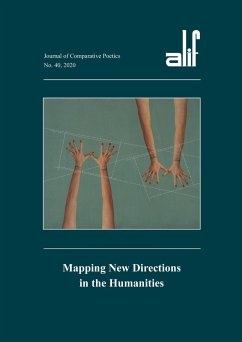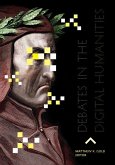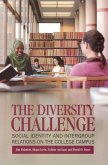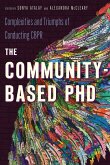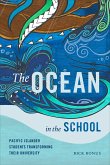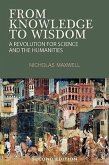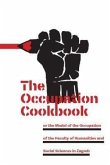An interdisciplinary exploration of the most recent research trends and directions in the humanities This issue of Alif is dedicated to efforts to redefine and reorient the humanities in light of global institutional and intellectual realities. "Mapping" is construed in several ways: the more literal meaning of geographical "reorientation" in the sense of efforts to redefine the relationship between global north and south, and between Western and non-Western intellectual traditions. It also refers to the remapping of the modern university by interdisciplinary and multidisciplinary work in the humanities that brings it to new shores such as the digital humanities and medical humanities. Essays map out ways for the humanities to better engage the extra-academic pressures shaping the modern university as it remains true to its own best long-standing goals and values. Editorial Board (alphabetically by last name): Omaima Abou Bakr (Cairo University) Saad Albazei (King Saud University) Gaber Asfour (Cairo University) Mohammed Berrada (University of Mohamed V) Ira Dworkin (Texas A&M University) Ziad Elmarsafy (King's College London) Sabry Hafez (SOAS, University of London) Richard Jacquemond (Aix Marseille University) Céza Kassem-Draz (AUC and Cairo University) As'ad Khairallah (American University of Beirut) Andrew N. Rubin (University of Texas at Dallas) Randa Sabry (Cairo University) Doris Enright-Clark Shoukri (AUC) Hoda Wasfi (Ain Shams University) Contributors (alphabetically by last name): Shereen Abouelnaga, Cairo University, Egypt Tamer Amin, American University of Beirut, Lebanon Brian James Baer, Kent State University, Ohio, USA Abdesslam Benabdelali, Mohammed V University, Rabat, Morocco Claire Gallien, University Paul Valéry, Montpellier, France Nadia Hashish, Ain Shams University, Cairo, Egypt Naglaa Saad Hassan, Fayoum University, Egypt Hassan Hilmy, Hassan II University, Casablanca, Morocco Samia Al Hodathy, Paris Nanterre University, France Hala Kamal, Cairo University, Egypt David Konstan, New York University, USA Hossam Nayel, the Academy of Arts, Cairo, Egypt Antonio Pacifico, Oriental University Institute, Naples, Italy Yasmine Sweed, MSA University, Cairo, Egypt Levi Thompson, University of Colorado-Boulder, USA Youssef Yacoubi, Seton Hall University, South Orange, New Jersey, USA
